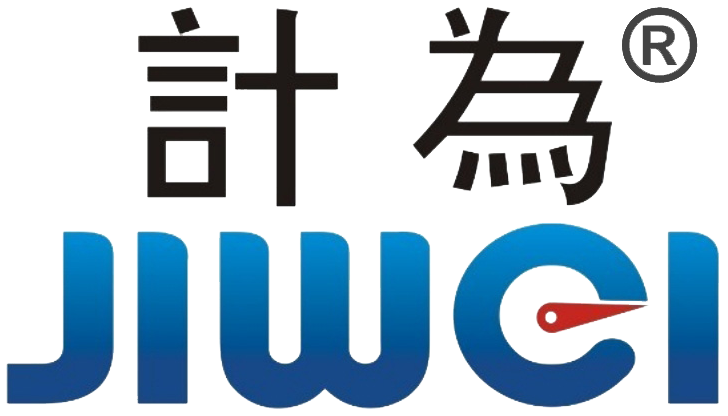Why Radar Level Measurement Outperforms Other Technologies in 2025
Radar Level Measurement: The Industry’s Most Reliable Choice
Radar technology has rapidly become the preferred solution for level measurement in industries, especially for liquids in challenging environments. The core principle behind radar level measurement involves emitting high-frequency microwave signals toward the liquid surface. These signals reflect back to the sensor, which uses the time it takes for the signal to return to determine the precise liquid level.
Unlike traditional level sensors such as ultrasonic and mechanical devices, radar sensors are non-contact and do not suffer from performance degradation due to temperature fluctuations, pressure changes, surface turbulence, or the presence of foam. Radar’s ability to perform in extreme conditions—like high pressures, high temperatures, or aggressive chemicals—makes it ideal for industries where reliable and accurate level measurement is crucial.Radar Level Measurement
In 2025, industries are increasingly demanding high-precision, low-maintenance sensors that reduce the total cost of ownership. Radar level sensors from Jiwei—a leading Chinese manufacturer—are designed to meet these demands, offering both exceptional reliability and longevity.
Why Radar Technology Excels in Liquid Applications

Radar level sensors have proven to be particularly effective for liquid applications where traditional technologies often fail. Whether it’s dealing with highly corrosive chemicals, high-temperature liquids, or volatile compounds, radar technology offers a level of performance that is unmatched by other methods.
Here are the key advantages of radar in liquid measurement:
- Immune to external conditions: Radar is unaffected by steam, condensation, or vapor, unlike ultrasonic sensors which can be easily disrupted by these factors.
- No impact from foam or surface turbulence: Radar sensors work accurately even when the liquid surface is disturbed or frothy, which can compromise the performance of other technologies.
- Resistant to temperature and pressure changes: Radar sensors provide stable and accurate measurements despite fluctuations in temperature and pressure, making them ideal for extreme environments.Radar Level Measurement
- Ideal for corrosive, hot, or hazardous liquids: Radar sensors are unaffected by aggressive or abrasive media, providing a reliable measurement where other sensors might degrade or fail.
Jiwei’s 80GHz FMCW radar sensors are designed to provide accurate readings even in challenging conditions, such as narrow tanks with agitators or low-reflectivity liquids. Radar Level Measurement

Key Advantages of Jiwei Radar Level Meters
| Feature | Jiwei 80GHz Radar Level Meter |
|---|---|
| Measurement Type | Non-contact, continuous |
| Frequency | 80GHz (FMCW radar) |
| Temperature Range | -40°C to +220°C |
| Measuring Distance | Up to 120 meters |
| Beam Angle | Ultra-narrow 3° |
| Output Signal | 4–20mA/HART, RS485/Modbus |
| Housing | IP67, optional explosion-proof versions |
| Application Media | Liquids (including corrosive or hot media) |
Additionally, Jiwei’s radar sensors support Bluetooth-enabled configuration via the Jiwei Smart Control app, making installation and maintenance faster and more efficient. This feature also enables remote diagnostics, which can be a significant advantage in large or hazardous environments.
Real-World Applications of Radar for Liquids
Radar technology excels in real-world applications where reliable liquid level measurement is critical. Here are some examples of its success:Radar Level Measurement
- Chemical plants: Radar sensors are used to measure aggressive chemicals at varying temperatures and pressures, where ultrasonic and mechanical sensors are prone to failure.
- Wastewater treatment: In plants with foam, vapor, and corrosive substances, radar sensors provide stable readings, unlike ultrasonic sensors that may give inaccurate data.
- Food and beverage production: Radar technology can measure liquids like syrups, sauces, and water-based media, with high accuracy despite the presence of steam, foaming, and rapid level changes.
- Cold climates: Radar sensors installed in outdoor chemical tanks in Thompson, Manitoba, where temperatures can drop as low as -30°C, have shown reliable liquid measurements, without additional heating or insulation.Radar Level Measurement

Radar = Less Maintenance, Lower Costs
While radar level sensors are often considered a premium option, their long-term cost-effectiveness is undeniable. Here’s why:Radar Level Measurement
- Non-contact measurement: No physical contact with the liquid means no fouling, buildup, or maintenance.
- No moving parts: With no moving parts, there is no wear and tear, reducing the likelihood of drift or failure.Radar Level Measurement
- Low recalibration needs: Radar sensors maintain their accuracy over long periods without requiring frequent recalibration.
- Reduced operator intervention: Radar sensors work reliably without the need for constant monitoring or adjustment.
- Reduced downtime: Fewer shutdowns for maintenance or sensor replacement, leading to increased productivity.Radar Level Measurement
Moreover, Jiwei radar level transmitters integrate seamlessly with SCADA or DCS systems for real-time remote monitoring and control, optimizing plant-wide efficiency.Radar Level Measurement
Conclusion: Radar is the Future of Liquid Level Measurement
Radar level measurement technology is rapidly becoming the go-to solution for liquid level measurement in various industries due to its accuracy, durability, and low maintenance. Jiwei radar level meters are designed to provide reliable, stable, and accurate readings even in the most demanding applications.
With their robust performance in high-temperature, high-pressure, and corrosive environments, Jiwei radar sensors are the ideal choice for measuring liquids in industries like chemical manufacturing, wastewater treatment, food and beverage, and more.
For a proven, cost-effective solution to liquid level measurement, Jiwei offers the most reliable radar technology available.
radar level measurement radar sensor for liquids Jiwei radar level meter non-contact liquid level sensor 80GHz radar transmitter industrial radar liquid sensor FMCW radar level meter radar vs ultrasonic for liquids

